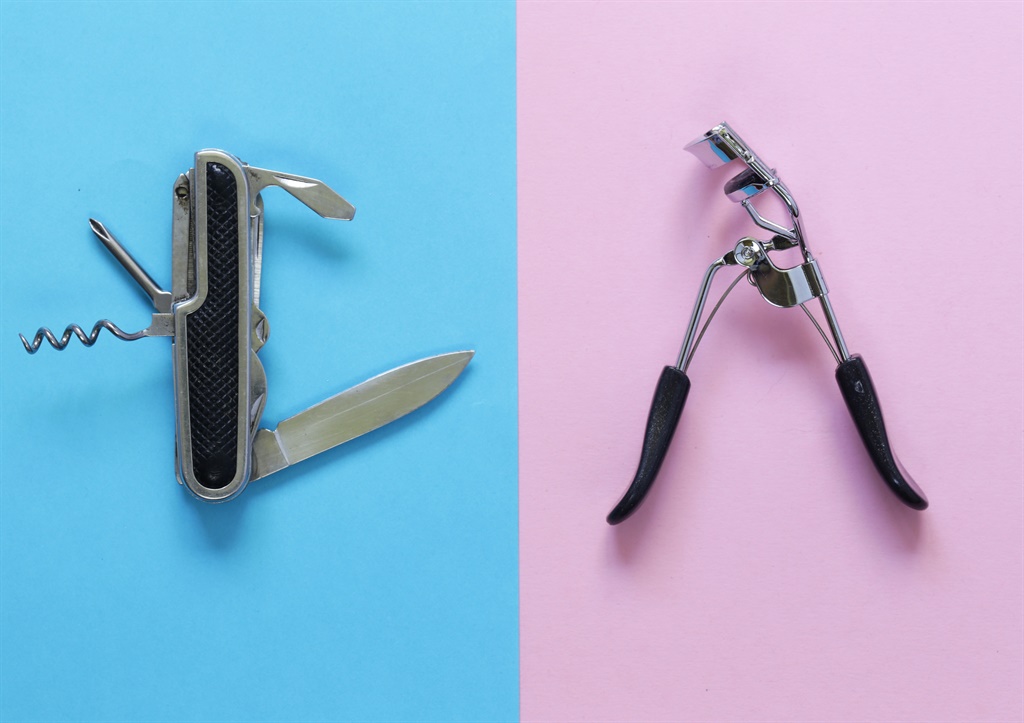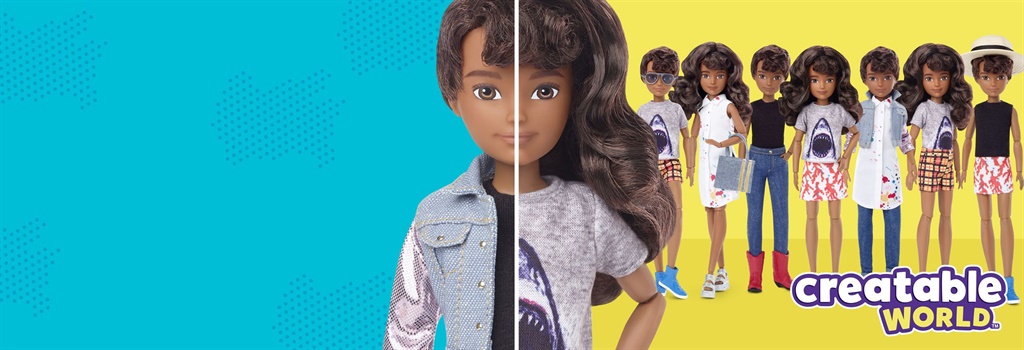
This year, a remarkable collaboration called Project #ShowUs was launched by Getty Images, Girlgaze (a community of nonbinary and woman-identifying creatives) and Dove. The aim is to create the world’s largest stock photo library of women and nonbinary people to shatter beauty stereotypes.
Seventy percent of women don’t feel represented in mainstream media and advertising due to the lack of images of different body types, different races, older women and gender-fluid people. It is hoped that this resource of more than 5 000 diverse images of women will create a more inclusive image of beauty. It is an initiative that must be applauded as the focus on improving diversity and inclusivity sweeps around the world. However, in South Africa, we have to scale the conversation back. Much further back.
Dealing with the beauty stereotypes of women in media is an important issue as it directly affects emotional self-worth for girls and young women, but the issue of gender stereotyping has the potential to create far more dangerous ripple effects, especially in South Africa’s patriarchal culture.
The recent protests around the country against gender-based violence spawned the hashtag #AmINext. We seem to go through mind-numbing cycles of outrage and new hashtags (#MenAreTrash in 2017) that are punctuated by regurgitated political platitudes when we go through the motions of the 16 Days of Activism for No Violence Against Women and Children at the end of each year.
So what can we do to prevent another hashtag from being invented the next time a horrific case of femicide hits the headlines? Which it sadly will.
South Africa’s deep-seated patriarchy is entrenched by the language we use when raising our children. We not only enforce gender stereotypes, but also automatically belittle young girls and impose limitations on them. Studies have shown that, by the age of six, gender stereotyping is embedded into children’s brains.
Six years old – that’s the age when girls stop thinking they can be anyone and do anything they want, and when they begin to feel less capable than boys. This phenomenon is called the Dream Gap and it’s an issue toy company Mattel has been tackling by producing toys that are more diverse and less gender stereotyped.
The company recently launched a range of gender-neutral dolls specifically aimed at a new generation of children who are fast accepting and adapting to a world where people can be gender fluid or nonbinary.
But if a child’s changed perception is then remoulded by adult language, it becomes a futile exercise. Girls are typically praised and reaffirmed as “princesses”, while boys are encouraged to be superheroes and, in a reverse Dream Gap, are told not to cry “like a girl”, which teaches them early on that girls are inferior.
To raise awareness of the impact of gendered speech, Finnish child rights organisation Plan International created Sheboard, a predictive texting app that corrects stereotypically gendered speech as you type. The app suggests gender neutral words and phases that are designed to empower girls, including “I’m capable” and “I deserve”.
Similarly, ElaN Languages, a translation company in Belgium, introduced an online tool called the unbias button on Women’s Day this year. Like Sheboard, the plug-in will “translate” biased words into unbiased alternatives. For example, ‘fireman’ is translated as ‘firefighter’ and ‘cameraman’ translates as ‘camera operator’. It will also flag biased words that affect men, so the word ‘midwife’ translates as ‘birthing assistant’.
However, the UK’s Advertising Standards Authority is not waiting for society to self-correct. In June, it placed a ban on harmful gender stereotyping in all broadcast and nonbroadcast media, including online and social media. In a press statement, it explained the ban by stating that “harmful stereotypes can restrict the choices, aspirations and opportunities of children, young people and adults, and these stereotypes can be reinforced by advertising, which plays a part in unequal gender outcomes”.
Justice has been swift. Two advertisements – one for Philadelphia cream cheese and the other for Volkswagen – were banned in August. The Philadelphia ad portrayed two dads as incapable of looking after their children, while the Volkswagen ad showed a series of scenes including two male astronauts, a male para-athlete and a woman sitting on a bench next to a pram with the catch phrase: “When we learn to adapt, we can achieve anything.” Ouch.
Like most issues involving identity politics, many would consider addressing gender stereotyping with these predictive text apps and advertising bans as a slide into an overtly politically correct world. But if gender stereotyping can be entrenched by the age of six, it’s not only the seeds of limitation planted in a young girl’s mind that are concerning, but the seeds planted in young boys’ minds that girls are inferior are worse.
And we know all too well what kind of harvest these bad seeds can bring when those boys grow up
- Chang is the founder of Flux Trends
Do you think South Africans are ready to change the way we use gender stereotypes, or is this an issue most people are unaware of?
SMS us on 35697 using the keyword GENDER and tell us what you think. Please include your name and province. SMSes cost R1.50. By participating, you agree to receive occasional marketing material.
 | ||||||||||||||||||||||||||
Get in touchCity Press | ||||||||||||||||||||||||||
| ||||||||||||||||||||||||||
| Rise above the clutter | Choose your news | City Press in your inbox | ||||||||||||||||||||||||||
| City Press is an agenda-setting South African news brand that publishes across platforms. Its flagship print edition is distributed on a Sunday. |
.
- .




 Publications
Publications
 Partners
Partners










